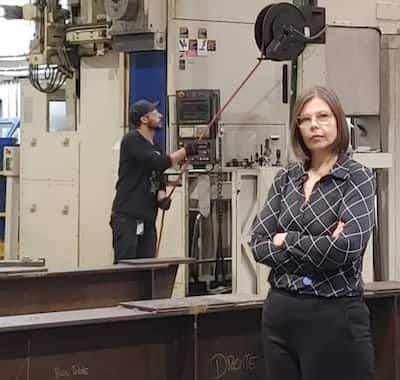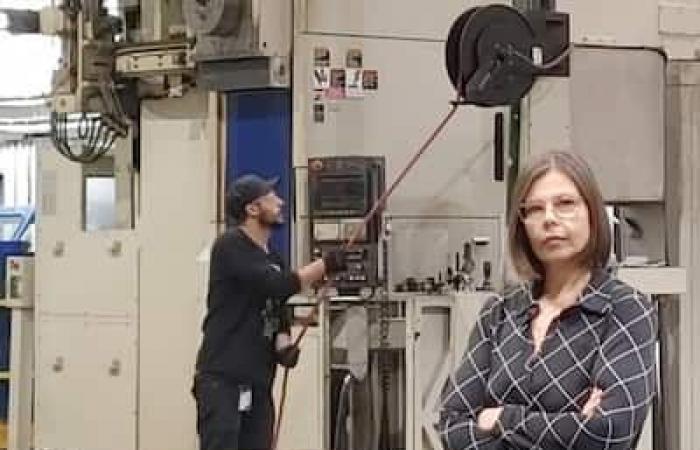A Beauceron fears losing millions of dollars in sales if it is deprived of half of its 50 temporary foreign workers (TET), who can sometimes earn up to $100,000 per year and who are far from being cheap laboraccording to him.
“They earn between $28 an hour and $35 an hour, plus significant benefits. With overtime, some are around $100,000 per year if you calculate everything,” illustrates Louis Veilleux, CEO of the Mundial Group, a sheet metal subcontractor.
“If we lose half of our 50 TETs, our sales will drop by $4 million or $6 million on our turnover of $70 million,” sighs the man at the head of the Saint-Lambert company -de-Lauzon.
What shocks Louis Veilleux is that although he has invested more than $6 million in automation in his factories as requested by the government, he still finds himself with his mouth to water.
Louis Veilleux believes that manufacturers are the big losers in a political war between the federal and provincial governments over immigration.
Photo provided by Groupe Mundial
“We think we have factories outside Quebec. We discussed it at the board of directors. Alberta is also interesting because there is one less level of government there,” breathes the leader.
Since mid-September, SMEs can employ half as many low-paid foreign workers, or a maximum of 10% of their workforce, compared to 20% previously. They can have a work visa of up to one year, rather than two years. Ottawa is also forcing employers to increase the median wage by $5.49, from $27.47 to $32.96 per hour.
In recent weeks, The Journal has told several stories of SME bosses who are preparing to lose big with these new rules.
Table provided by MEQ
«Political sandwich»
Since then, manufacturers have not given up: they want to be excluded from these new rules like construction and the agri-food industry.
“We are caught in a political sandwich and no one thinks about the economy in that. Governments could help us,” loudly denounces Julie White, interim spokesperson for Manufacturiers Exportateurs du Québec (MEQ).
“It is not true that there are workers available and that we can replace workers with machines by snapping our fingers,” she sighs.
Exorbitant costs
According to a survey obtained by The Journal of the sectoral committee for manpower in industrial metal manufacturing (PERFORM), carried out with 79 manufacturers, colossal sums have already been invested for TETs.
More than 37% have had to spend more than $50,000 to accommodate them over the last three years. Some 21% injected between $10,000 and $24,999 for transportation.
In total, more than 61% say they do not have enough employees to have “normal productivity”, even if they have invested in automation to the tune of 71%.
“We have 32 TFWs. They are well integrated. Their children go to school. We will lose a qualified workforce. We are going to lose a good million dollars in sales,” regrets Marie-Jeanne Bonneau, deputy general manager of the family business Industries Dodec, in Saguenay.

Marie-Jeanne Bonneau, deputy general director of the family business Industries Dodec
Photo provided by Dodec
“I wonder if the government is behind us or not,” asks the machining and welding SME.
Do you have any information to share with us about this story?
Write to us at or call us directly at 1 800-63SCOOP.








